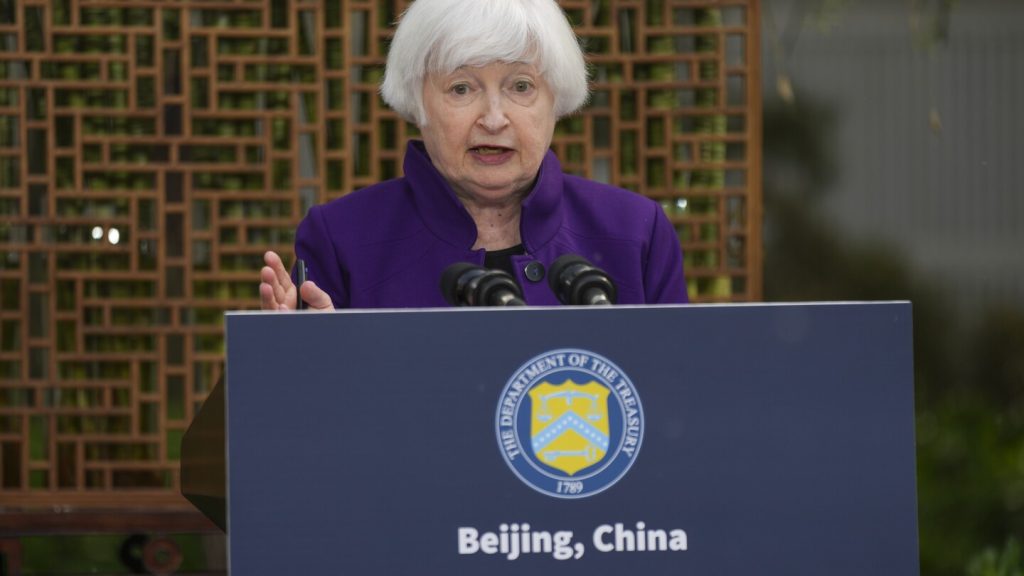The Biden administration is focusing on pushing China to change its industrial policy in order to protect U.S. jobs. This comes after Treasury Secretary Janet Yellen wrapped up talks with Chinese officials in Beijing, where they discussed national security concerns as well. The main issue of contention is the manufacturing overcapacity in China, particularly in sectors such as electric vehicles, batteries, and solar energy equipment. Yellen emphasized that the global market cannot absorb China’s massive capacity, leading to low-priced Chinese exports that threaten the viability of foreign firms, including American companies.
In an effort to address these concerns, the U.S. plans to host Chinese counterparts for economic and financial working group meetings next week where these issues will be further discussed. This move is part of ongoing efforts to ease tensions and deepen ties between the two nations. However, it remains unclear how China will respond to these calls for policy changes. European officials have raised similar concerns with China in the past without seeing any significant progress on the Chinese side. Chinese leader Xi Jinping’s goal of building the nation into a major power may make it difficult for China to bend to outside pressure.
Despite the impact of manufacturing overcapacity on both China and foreign countries, experts have called for better coordination of policies to promote new technologies. During Yellen’s visit, the government agreed to begin talks on achieving “balanced growth” in the industrial sector. Yellen also advocated for higher consumer spending in China as a response to government subsidies in green energy industries. This shift in policy is crucial to avoid excessive investment in building supply of green energy products. Yellen highlighted the need for a change in China’s approach during talks with Chinese officials.
Yellen also addressed the issue of the war in Ukraine, warning that banks facilitating the sale of military or dual-use goods to Russia could face U.S. sanctions. She emphasized that companies, including those in China, should not provide material support for Russia’s war. This statement comes amid Russian Foreign Minister Sergey Lavrov’s visit to Beijing for talks on the Ukraine conflict and other issues. In response to Yellen’s warnings, a Chinese Foreign Ministry spokesperson emphasized the importance of maintaining normal state-to-state relations between China and Russia without harming the legitimate rights and interests of Chinese enterprises. Yellen also met with China’s central bank governor to discuss economic issues.
Overall, the Biden administration’s efforts to address China’s industrial policy and national security concerns reflect a broader strategy to strengthen economic ties and protect U.S. interests. The ongoing discussions between the U.S. and China are crucial for finding solutions to issues such as manufacturing overcapacity, while also addressing the geopolitical implications of the war in Ukraine. However, the challenges of dealing with China’s industrial policy and global economic influence highlight the complexities of U.S.-China relations and the need for continued dialogue and cooperation to achieve mutual goals.


